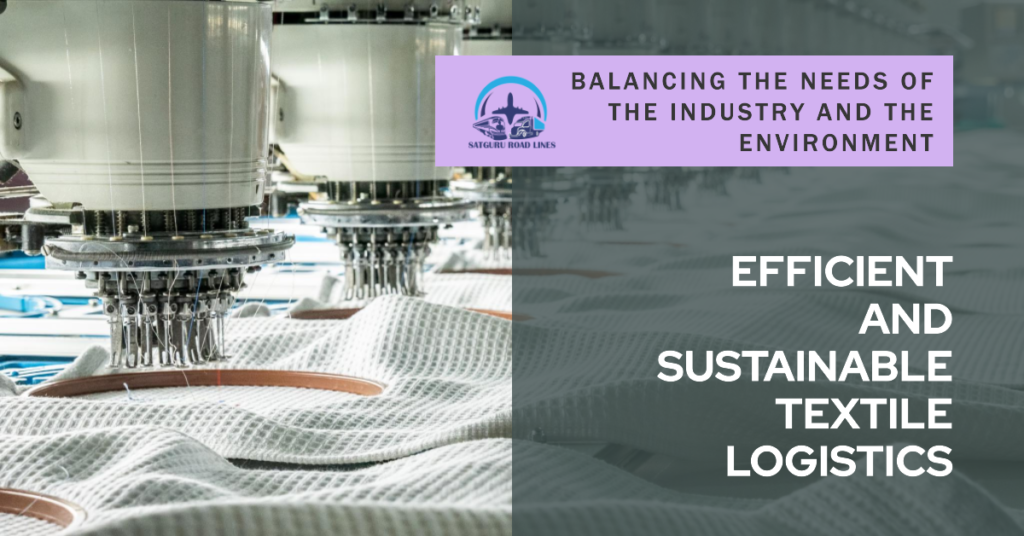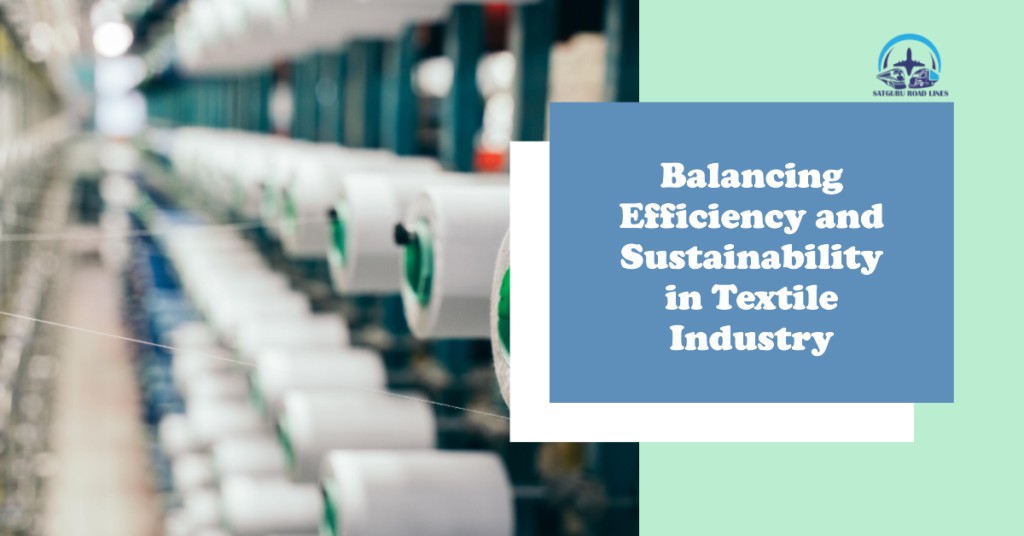
At Satguru Road Lines, we understand the critical role transportation plays in the textile supply chain. As a vital link in this complex network, we recognize the increasing concerns about the environmental impact of the textile industry. In this blog post, we delve into the delicate balance between efficiency and sustainability in textile transportation, exploring facts and figures that shed light on the current state of affairs.
I. Introduction
In the vast tapestry of the textile industry, the thread of transportation weaves together every stage of production. From raw materials to finished products, the seamless flow of goods is essential for the industry’s success. This holds particularly true in major textile hubs like Delhi, Mumbai, Pune, Chennai, and Bangalore, where the demand for efficient and sustainable transportation is paramount.
II. The Textile Industry’s Impact on the Environment
The statistics are stark – the textile industry is a significant contributor to carbon emissions and environmental degradation. Our commitment at Satguru Road Lines involves not only acknowledging these facts but actively seeking ways to mitigate our impact. In bustling textile centers like Mumbai and Delhi, where industrial activities are intense, the need for responsible transportation practices becomes even more urgent.
III. The Need for Efficiency in Textile Transportation
Efficiency in transportation is not just a matter of convenience; it’s a financial and environmental imperative. Wasteful transportation practices not only drive up costs but also contribute significantly to the industry’s carbon footprint. At Satguru Road Lines, we recognize the importance of streamlining operations to meet the demands of a rapidly evolving industry, especially in cities like Pune and Bangalore, where textile businesses thrive.
IV. Sustainable Practices in Textile Transportation
It’s not just about moving goods from point A to point B; it’s about how we do it. Embracing Sustainable Textile Transportation practices is a crucial step towards minimizing our impact. We showcase real-world examples of companies within the industry, from Chennai to Pune, adopting eco-friendly transportation methods. These initiatives prove that sustainability and success can go hand in hand, even in the heart of textile production.

V. Striking a Balance: Efficiency vs. Sustainability
Balancing Efficiency and Sustainability in Textile Transportation is no small feat. We explore the challenges faced by the industry in finding this equilibrium, recognizing that textile businesses in cities like Delhi and Mumbai often grapple with the inherent tension between cost-effective transportation and eco-friendly practices. Our commitment is to provide solutions that meet the unique demands of each location, fostering innovation and collaboration in the textile transportation landscape.
VI. Facts and Figures: The Environmental Impact of Textile Transportation
Let’s delve into the numbers. Traditional transportation methods contribute significantly to carbon emissions, affecting major textile hubs like Pune and Chennai. By comparing various transportation modes in terms of sustainability, we aim to provide a clear picture of the environmental impact. Real-world case studies from our operations in Delhi and Bangalore illustrate the positive changes that sustainable transportation practices can bring about in diverse urban landscapes.
VII. Future Trends and Innovations
The future of textile transportation is in our hands. We explore emerging technologies that promise to revolutionize the way goods move within the industry. From electric and hybrid vehicles to innovative packaging solutions, the road ahead is paved with opportunities for positive change. Satguru Road Lines is committed to staying at the forefront of these trends, ensuring that our practices align with a greener and more sustainable future, even in bustling cities like Bangalore and Chennai.
VIII. Conclusion
In conclusion, the journey towards a more sustainable textile industry starts with us – the transportation providers. At Satguru Road Lines, we acknowledge the challenges, embrace the opportunities, and commit ourselves to finding the delicate balance between efficiency and Sustainable Textile Transportation. As we navigate this path, we call on our industry peers and partners in Delhi, Mumbai, Pune, Chennai, and Bangalore to join us in this collective effort for a better, greener tomorrow.
